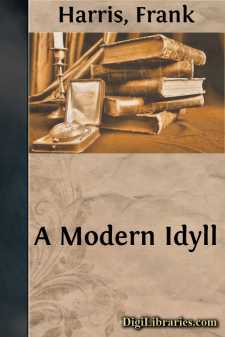Categories
- Antiques & Collectibles 13
- Architecture 36
- Art 48
- Bibles 22
- Biography & Autobiography 813
- Body, Mind & Spirit 142
- Business & Economics 28
- Children's Books 17
- Children's Fiction 14
- Computers 4
- Cooking 94
- Crafts & Hobbies 4
- Drama 346
- Education 46
- Family & Relationships 57
- Fiction 11829
- Games 19
- Gardening 17
- Health & Fitness 34
- History 1377
- House & Home 1
- Humor 147
- Juvenile Fiction 1873
- Juvenile Nonfiction 202
- Language Arts & Disciplines 88
- Law 16
- Literary Collections 686
- Literary Criticism 179
- Mathematics 13
- Medical 41
- Music 40
- Nature 179
- Non-Classifiable 1768
- Performing Arts 7
- Periodicals 1453
- Philosophy 64
- Photography 2
- Poetry 896
- Political Science 203
- Psychology 42
- Reference 154
- Religion 513
- Science 126
- Self-Help 84
- Social Science 81
- Sports & Recreation 34
- Study Aids 3
- Technology & Engineering 59
- Transportation 23
- Travel 463
- True Crime 29
The Man Shakespeare
by: Frank Harris
Description:
Excerpt
INTRODUCTION
This book has grown out of a series of articles contributed to "The Saturday Review" some ten or twelve years ago. As they appeared they were talked of and criticized in the usual way; a minority of readers thought "the stuff" interesting; many held that my view of Shakespeare was purely arbitrary; others said I had used a concordance to such purpose that out of the mass of words I had managed, by virtue of some unknown formula, to re-create the character of the man.
The truth is much simpler: I read Shakespeare's plays in boyhood, chiefly for the stories; every few years later I was fain to re-read them; for as I grew I always found new beauties in them which I had formerly missed, and again and again I was lured back by tantalizing hints and suggestions of a certain unity underlying the diversity of characters. These suggestions gradually became more definite till at length, out of the myriad voices in the plays, I began to hear more and more insistent the accents of one voice, and out of the crowd of faces, began to distinguish more and more clearly the features of the writer; for all the world like some lovelorn girl, who, gazing with her soul in her eyes, finds in the witch's cauldron the face of the belovèd.
I have tried in this book to trace the way I followed, step by step; for I found it effective to rough in the chief features of the man first, and afterwards, taking the plays in succession, to show how Shakespeare painted himself at full-length not once, but twenty times, at as many different periods of his life. This is one reason why he is more interesting to us than the greatest men of the past, than Dante even, or Homer; for Dante and Homer worked only at their best in the flower of manhood. Shakespeare, on the other hand, has painted himself for us in his green youth with hardly any knowledge of life or art, and then in his eventful maturity, with growing experience and new powers, in masterpiece after masterpiece; and at length in his decline with weakened grasp and fading colours, so that in him we can study the growth and fruiting and decay of the finest spirit that has yet been born among men. This tragedy of tragedies, in which "Lear" is only one scene—this rise to intensest life and widest vision and fall through abysms of despair and madness to exhaustion and death—can be followed experience by experience, from Stratford to London and its thirty years of passionate living, and then from London to village Stratford again, and the eternal shrouding silence.
As soon as this astonishing drama discovered itself to me in its tragic completeness I jumped to the conclusion that it must have been set forth long ago in detail by Shakespeare's commentators, and so, for the first time, I turned to their works. I do not wish to rail at my forerunners as Carlyle railed at the historians of Cromwell, or I should talk, as he talked, about "libraries of inanities…conceited dilettantism and pedantry…prurient stupidity," and so forth....








